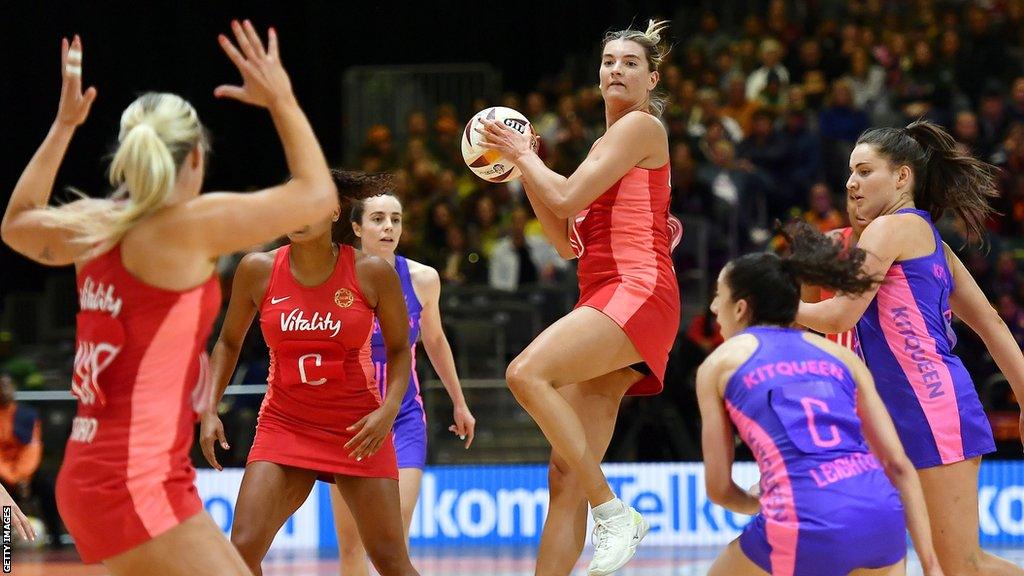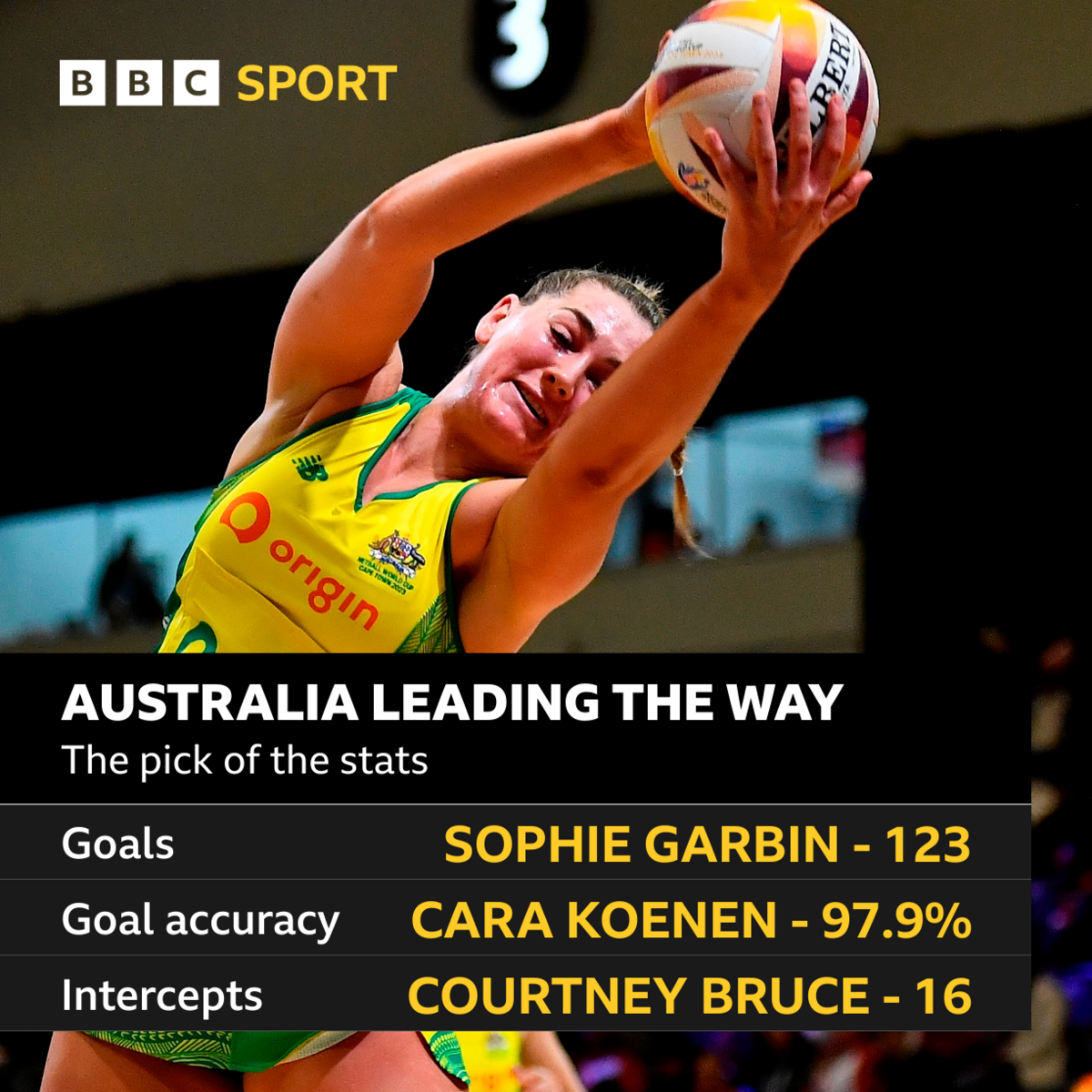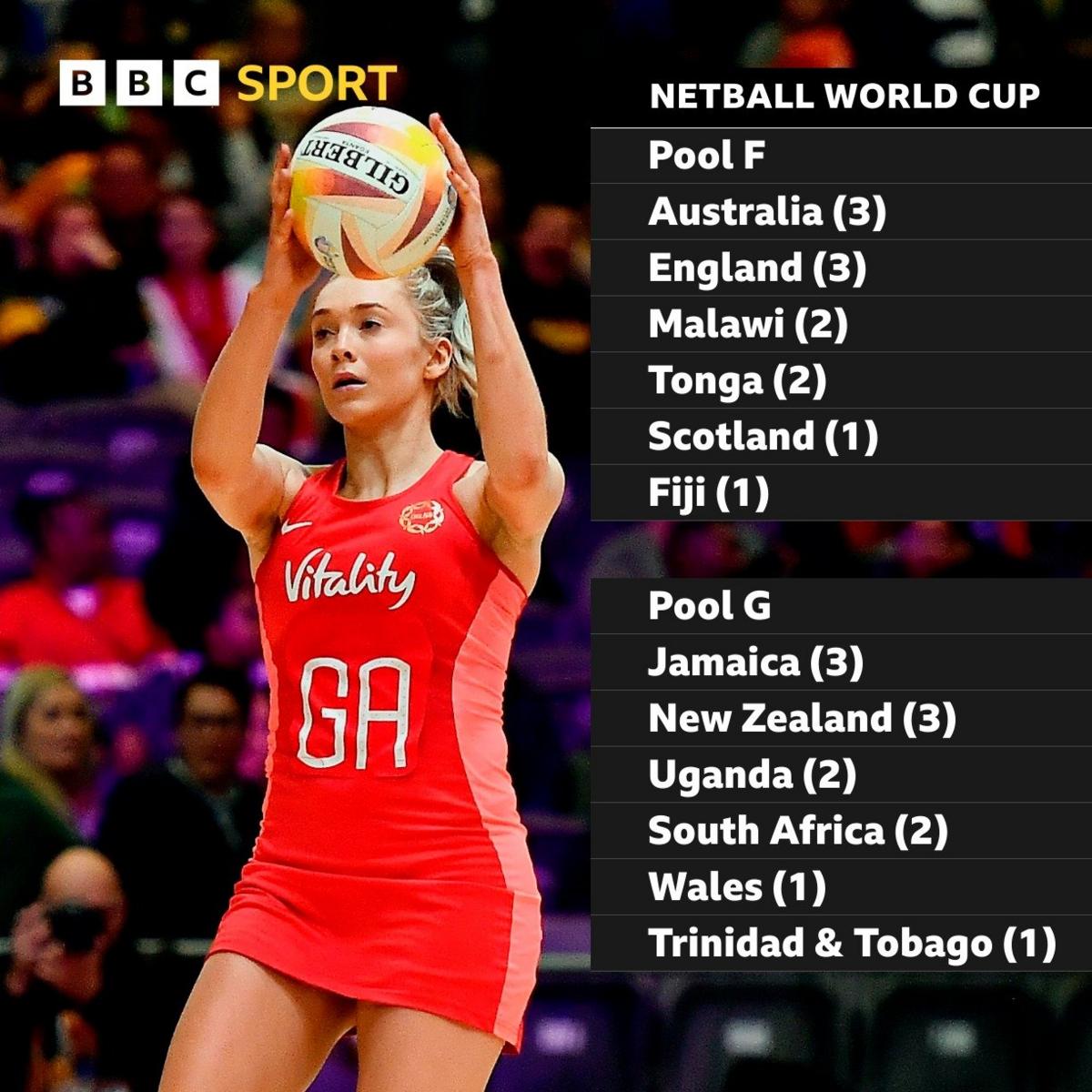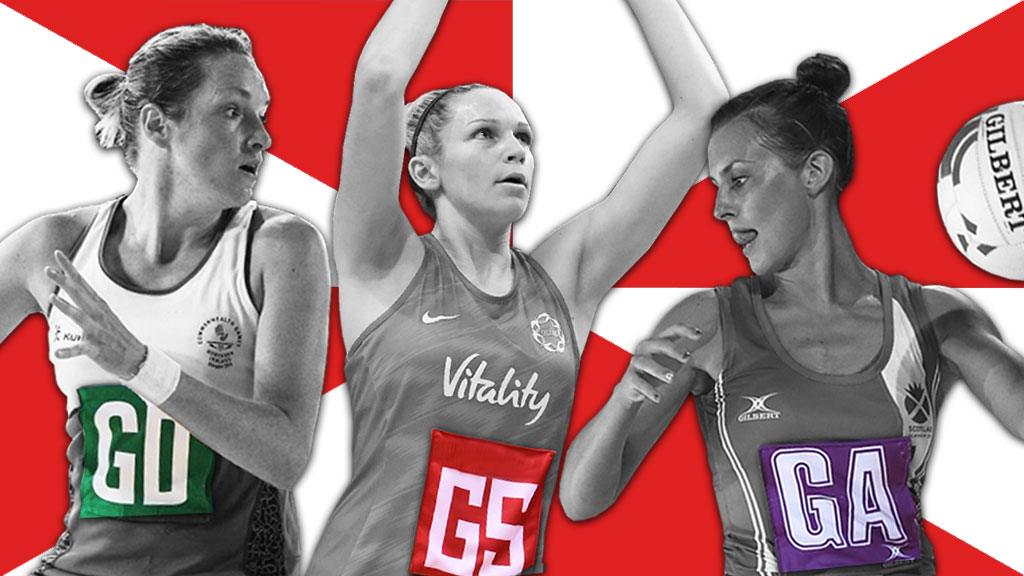Netball World Cup 2023: What have we learned from preliminary stage in South Africa?
- Published

England are looking to reach a first World Cup final
Netball World Cup 2023 |
|---|
Venue: Cape Town, South Africa Dates: 28 July to 6 August |
Coverage: Watch live coverage on BBC TV and BBC iPlayer, listen to commentary on BBC Radio 5 Live, 5 Sports Extra & BBC Sounds and follow text commentary of selected matches on BBC Sport website and app. |
The preliminary pool stage of the Netball World Cup has ended - so, what have we learned after three days of action in Cape Town?
From favourites living up to their billing, to empty seats and mid-match interviews, we take a look at what the initial phase of the tournament in South Africa has thrown up.
And we'll also consider how England are shaping up before the more challenging stages of the competition begin.
The BBC's TV coverage of the tournament starts on Monday across TV, iPlayer and the BBC Sport website and app.
Favourites all record perfect starts
For the world's top four teams, it has been largely plain sailing, with each completing a perfect start - as they would expect in the early stages of the tournament.
Australia, New Zealand, England and Jamaica have each won all three of their respective pool matches and, with results being carried over to the next phase, that could prove crucial.
Defending champions New Zealand overcame a tough challenge against Uganda but concerns were quickly squashed as they eased past Singapore to top their group.
Aiming to reclaim their World Cup title after winning Commonwealth gold last year, 11-time world champions Australia have been as ruthless as ever with their speed in attack leading them to score more than 80 goals in each match.

Australian players lead the way in some of the key statistics, including goals, goal accuracy and intercepts
Commonwealth Games silver medallists Jamaica cruised through and made a statement in their final Pool C match with a comprehensive win over hosts South Africa, a victory that could prove vital to reaching the semi-finals.
With tougher tests ahead, each side have also managed to rotate their squads, with coaches already thinking about resting legs as well as trialling different combinations on court.
How are England shaping up?
England have progressed through their group with wins against Barbados, Malawi and Scotland.
They overcame a tough challenge against Malawi, where players lamented a slow start, but head coach Jess Thirlby said she was pleased for her side to have had a "test" so early on and there was "no need to panic".
England have struggled, at times, to provide their formidable shooting options with the service they need but, after a lot of chopping and changing, a more settled starting seven from Thirlby can be expected as the next phase progresses.
"Every game we have managed to get all 12 players on court and seen so many different combinations of people playing in different positions," co-captain Layla Guscoth said.
"That can only hold us in good stead going into the next week. We need that versatility to see us through to the end."
The Roses face Tonga on Monday and Thirlby said her side are "well prepared" for the task as they seek to improve on their third-place finish at the last World Cup in Liverpool four years ago.
With stiffer opposition to face, slow starts and high error counts will need to be put to bed but, so far, England have got the job done in Cape Town.

Numbers in brackets indicate how many wins each team is carrying forward to the next phase
Empty seats and mid-match interviews
South African fans have made their voices heard at this World Cup, bringing a vibrant and colourful atmosphere to the host nation's matches with singing, dancing and chanting, as Africa hosts the tournament for the first time.
But that is in stark contrast to the swathes of empty seats evident at many of the other matches, including those involving the world's top sides.
Some locals told BBC Sport they felt tickets for the tournament had been too expensive at 500 rand (£22) for children and 700 rand (£31) for adults for the cheapest tickets.
Tickets include two back-to-back matches but even in those sessions that have included South Africa matches, seats have been largely empty for the other match.
Meanwhile, if you're tuning into the netball for the first time when the BBC coverage begins on Monday, you can expect to see something not very typical of many other sports.
Players, usually the captains, from each team spend a few minutes chatting to television media at half-time to give their assessment of how the match is going and what they need to do in the second half.
Not only that, coaches also stick a pair of headphones on and chat with the commentary team from the bench while play is ongoing.
Helpful insight into the match? Or an opportunity to plant some tactical red herrings?
Follow our coverage and make up your own mind.

Oppenheimer interview special: Ali Plumb sits down for a chat with Cillian Murphy, Christopher Nolan and Robert Downey Jr.
The latest stories from the Women's World Cup: World Football brings you post-match reactions and analyses

Related topics
- Published10 July 2019
